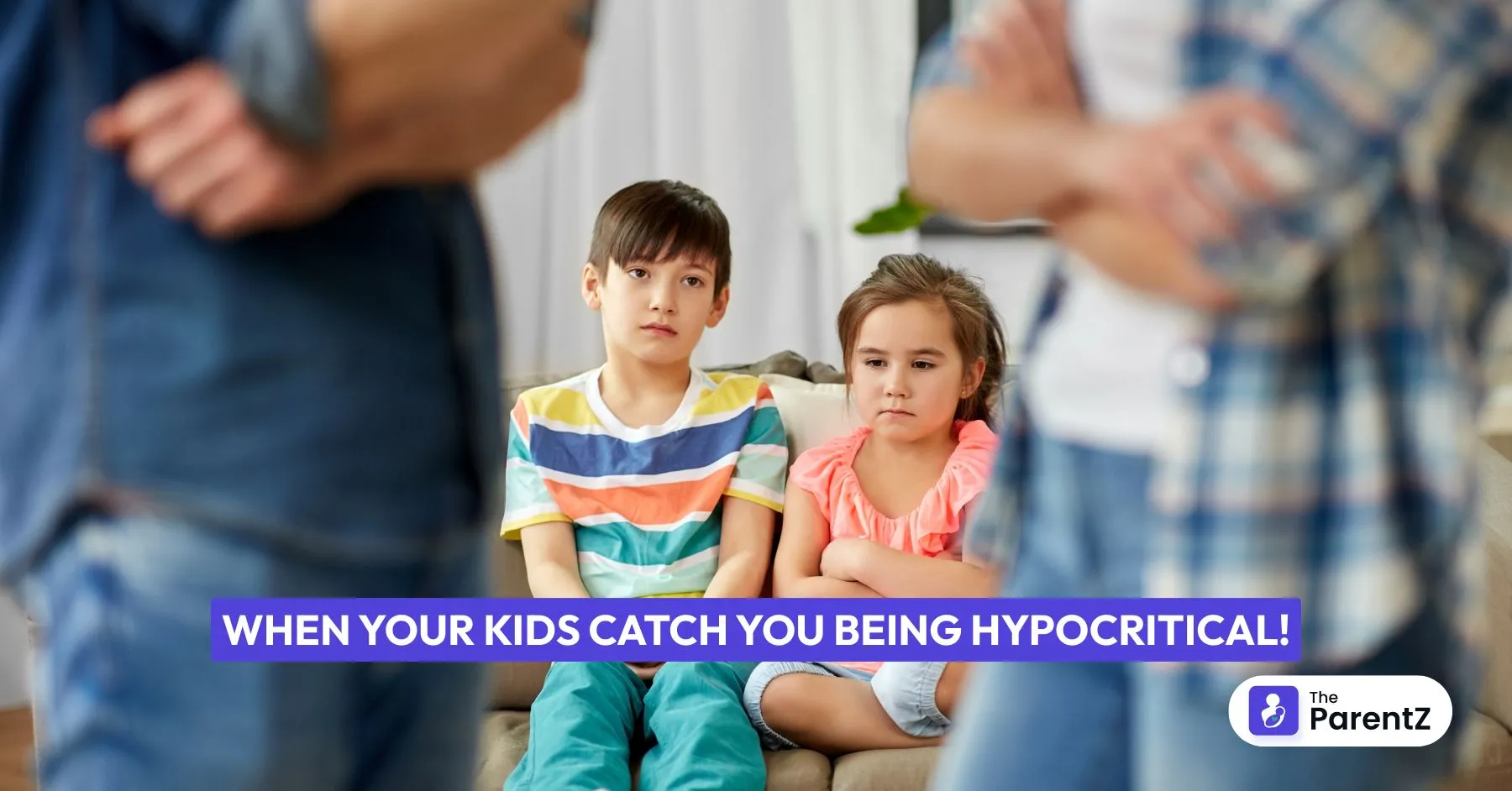Parenting is filled with love, laughter, and—let’s be honest—a fair share of contradictions. We all want to raise kind, honest, and responsible kids, but sometimes, in the hustle of daily life, we end up saying one thing and doing another. If you’ve ever told your child not to yell while raising your own voice or insisted they eat their veggies while munching on chips, you’re not alone. Kids notice these things. And when they catch us being hypocritical, it can be a humbling, even painful, wake-up call.
Let’s talk openly about these moments—not to blame, but to help each other grow as parents. Here’s how we can recognize, address, and gently move past our own hypocritical habits.
Recognizing Hypocrisy in Everyday Parenting
Kids are sharp observers. They watch us even when we think they’re not paying attention. Here are some common scenarios where our actions and words don’t quite match up:
- “I can lie, but you can’t.” Maybe you’ve debated why it’s time to leave the park (“It’s closing!”) but then scolded your child for telling a white lie.
- “You must share, but I don’t have to.” We insist our kids share their toys or treats, but sometimes, we’re reluctant to share our own snacks or gadgets.
- “Don’t use bad words,” but… We tell kids not to use certain language, yet we slip up ourselves when frustrated.
- “Eat all your food,” but… We expect clean plates from our kids but often leave food unfinished ourselves.
- “Don’t be grumpy,” but… We want our children to regulate their moods, yet we expect understanding when we’re having a bad day.
These moments are so relatable because they happen to all of us. The important thing is not to let guilt take over but to see these as opportunities for growth.
Why Hypocrisy Hurts
When kids see us acting against our own advice, it sends mixed messages. They might feel confused about what’s truly right or wrong, and it can even affect their trust in us. Over time, repeated hypocrisy can make children question the values we’re trying to teach, and it may hinder their moral development and ability to form healthy relationships. They may also feel disappointed or betrayed, which can impact their emotional well-being.
How to Handle Hypocrisy Without Guilt
First, let’s drop the guilt. Parenting is hard, and nobody gets it right all the time. Instead of beating ourselves up, we can:
- Acknowledge our mistakes. If your child points out your inconsistency, thank them for noticing. This models humility and openness.
- Apologize sincerely. A simple “You’re right, I shouldn’t have done that. I’m sorry” goes a long way.
- Explain, but don’t justify. It’s okay to share why you acted a certain way, but avoid making excuses. Instead, talk about how you’ll try to do better.
Practical Strategies to Model the Right Behaviors
- Be mindful of your words and actions. Before giving advice or setting rules, ask yourself if you’re willing to follow them, too.
- Lead by example. Kids learn more from what we do than what we say. If you want them to be kind, show kindness—even when it’s hard.
- Practice self-reflection. Take a few minutes each day to think about your actions and whether they align with your values.
- Make a list of family rules. Check-in regularly to see if you’re following them yourself.
Recognizing When You’re Being Hypocritical
Sometimes, we don’t even realize we’re being hypocritical. Here are some ways to catch yourself:
- Listen to your kids. If they call you out, pay attention instead of getting defensive.
- Notice your triggers. Are there certain situations where you’re more likely to slip up (like when you’re tired or stressed)?
- Ask for feedback. Encourage your partner or a trusted friend to gently point out inconsistencies.
Encouraging Open Communication
Let your kids know it’s safe to talk about these things. Say things like, “If you ever notice me doing something I’ve told you not to do, you can tell me.” This builds trust and teaches them that everyone, even adults, is a work in progress.
The Long-Term Impact—and How to Shift Toward Authenticity
Repeated hypocrisy can make children cynical or unsure about what’s truly important. But when we own up to our mistakes and try to do better, we teach them about honesty, growth, and forgiveness. Over time, this helps them develop strong values and empathy.
To shift toward more authentic parenting:
- Reflect regularly. Self-reflection helps us see our blind spots and make meaningful changes.
- Be patient with yourself. Change takes time. Celebrate small wins.
- Stay connected. Talk openly with your kids about values, mistakes, and learning together.
Conclusion
Every parent slips up. What matters most is how we respond when our kids catch us. By being honest, apologizing, and striving to do better, we show our children that growth is a lifelong journey. And in the end, that’s the most powerful lesson we can give them.
You’re not alone in this. We’re all learning, one day at a time.





Be the first one to comment on this story.